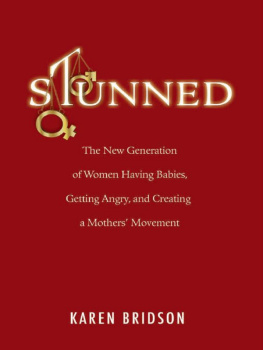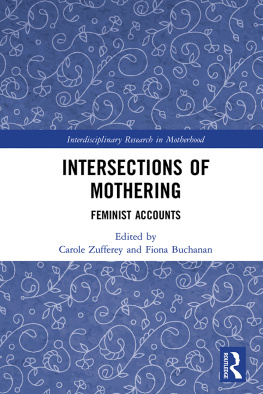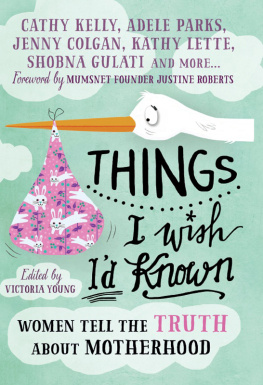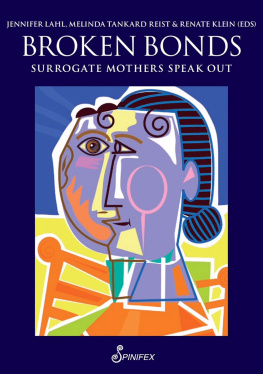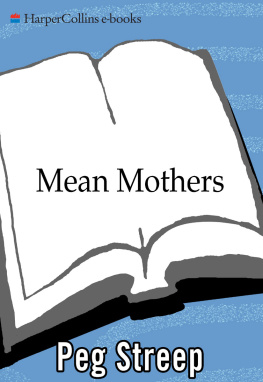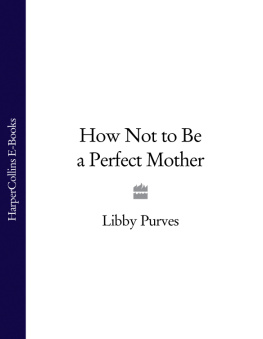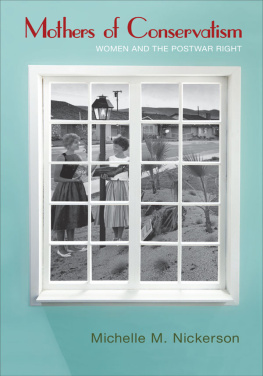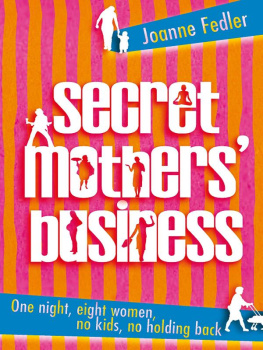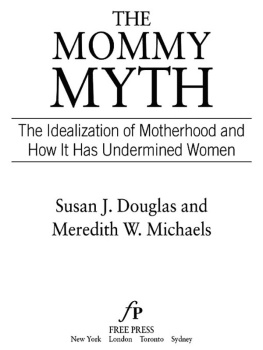Stunned
The New Generation
of Women Having Babies,
Getting Angry, and Creating
a Mothers Movement
Karen Bridson

Health Communications, Inc.
Deerfield Beach, Florida
www.hcibooks.com
Library of Congress Cataloging-in-Publication Data
is available through the Library of Congress.
2009 Karen Bridson
eISBN-13: 978-0-7573-9770-7 (ebook) eISBN-10: 0-7573-9770-0 (ebook)
All rights reserved. Printed in the United States of America. No part of this publication may be reproduced, stored in a retrieval system, or transmitted in any form or by any means, electronic, mechanical, photocopying, recording, or otherwise, without the written permission of the publisher.
HCI, its logos, and marks are trademarks of Health Communications, Inc.
Publisher: Health Communications, Inc.
3201 S.W. 15th Street
Deerfield Beach, FL 334428190
Cover design by Larissa Hise Henoch
Interior design and formatting by Lawna Patterson Oldfield
For Maddie, Jacqueline, Quinn,
Andronika, Marion, and Sahara.
May this book make no sense to you when you
have daughters
of your own.
Contents
Introduction
nineMonkey Mamas Unite
T he first person I have to thank is my husband, Bob, who does more care and housework than any man I know and often more than what is his fair share. Its been a rough road, Babe, but we made it! Id also like to thank the many, many women who Ive interviewed, interrogated, and otherwise harassed for the truth about their home life in playgrounds and schoolyards over the past six years while researching this book. In particular Id like to thank Lisa Currell, Stacey Carcao, Mary T., Alexandra Lipson, Melissa I., Amy Rogers, Kirsten M., Katie Z., and Kerri Sancomb. Id also like to thank the many people who helped me with my research, including Judy Stadtman Tucker, Faulkner Fox, Andrea OReilly, Ann Crittenden, Francine M. Deutsch, the Guerrila Girls, Amy Richards, Linda Smith, Laura Shook, Nancy Northrup, Jane Tallim, Audrey Brashich, and Lucy Lewis. Id also like to thank the many academics who have researched and continue to research the issues covered in this book and whose studies were an integral part of Stunned. My agent Laurie Harper was amazing throughout the process of getting this book from my desk onto the presses. And to new mama, my editor, Michele Matrisciani at HCI, for not only getting this book from the start, but for helping me make it the best it could be.
P OSTFEMINISM MEANS YOU CAN NOW WORK OUTSIDE OF THE HOME EVEN IN JOBS PREVIOUSLY RESTRICTED TO MEN, GO TO GRAD SCHOOL, PUMP IRON, PUMP GAS, AS LONG AS YOU REMAIN FASHION CONSCIOUS, SLIM, NURTURING, DEFERENTIAL TO MEN AND BECOME A DOTING, SELFLESS MOTHER.
Susan J. Douglas and Meredith W. Michaels, in The Mommy Myth
I often liken the change motherhood brings to a foot race. Before motherhood, we were women running alongside our male counterparts, keeping pace, falling behind, or sprinting ahead, encumbered by little. Then, suddenly, we were handed a boulder-sized gemstone. Our pace slowed to a waddle as we watched all the boys run off ahead. We tried not to feel bitter; after all, we always wanted this gemwe demanded this gem, in fact. And we loved it more than anything or anyone.
But we wanted to run from time to time too, and we quickly discovered that it is our job to find someone to hold our gem while we run a bit. When we asked our partners to carry the gem for us, they treated it as a favor, and then handed it back to us. We started to feel angry because our partners didnt seem to take the same responsibility for our gem as we did. The gem, our baby, somehow became our primary responsibility. Yet, we never asked for this incongruous arrangement.
Living the carefree lives of men for so long, many of us feel shock when the reality of a mothers life rains down upon us. Although our children bring us endless joy and love, becoming a mother often means we experience less respect, less financial reward, less personal time (if any), less long-term financial security, less power, less physical and spiritual freedom, more overall work, more uncompensated labor, and more pressures than our partners entering parenthood with us.
We quickly realize the lack of support and limited value our society places on motherhood. Ultimately, we recognize the true inequality motherhood brings. Second-wave feminism, the movement of women fighting for change in the 1960s and 1970s, brought welcomed change outside the homebut little within particularly in terms of daily work and life challenges. Some of us do have equitable arrangements; some even have partners who contribute more than we do. But, for far too many of us, the distribution of responsibility inside the home hasnt changed very much from the time our mothers were raising us. And, the weight of that responsibility becomes compounded by the fact that many of us work outside the home. Many women today feel angry, stressed, frustrated, and alone, while they struggle to adjust to their new lives as mothers. They feel they should be happy because they have it all, yet they realize that its not all they dreamed it would be.
I must stress that I love my son more than anything or anyone in this world, including myself. I would slay a fire-breathing dragon to prove my love for him! But that doesnt mean I should sacrifice everything for him, all the time. I was stunned when I had my son and saw my life change before my eyes. Much of my shock resulted from recognizing the sheer enormity of the job of raising a child and recovering from pregnancy and birth. I was even more shocked to see how good it appeared my husband had it compared to me. Yet, after nearly losing our marriage, my husband stepped up to the plate and took on more traditional mommy work than any man I know. I can now say things are very equal. But I had to fight for it.
All around me I see women who havent successfully leveled the workload in their homes. In this supposed postfeminist era, the war for equality on all fronts is supposed to be over. Whether we are stay-at-home moms, work-from-home moms, part-time, outside-of-the-house workers, or women with full-time work outside of the home, or some combination of the above, the majority of us are doing more than our fair share at home. There are a lot of great, feminist men out there, and a larger percentage of them are doing more of their share than ever before. But the many studies and statistics done of this issue clearly show, as Ill talk about later, that most men are not pulling their weight when it comes to the home and kids.
When my grandmother was born in 1909, women had very few rights. They could not vote in Canada, the United Kingdom, or the United States. Thankfully, the feminist suffragettes of the 1850s to the 1920s changed all that. Then, when my mother was a little girl in the 1950s, women had little choice but to do all the housework and take care of the children because a womans place was seen to be in the home. At the time, many women worked outside of the home to help out with the bills, too. Women were discouraged from attending college, and were taught simply to prepare themselves for mothering and housework. In fact, fewer women attended college in the 1950s than did so in the 1920s. If they decided to pursue higher education, often they were not accepted because of their sex.
Then, by the time I was born in 1973, the situation for women in the Western world began to change for better. Thanks to the feminist movement that began just before we were born, we earned the right to go to any school we wanted, to pursue any career we chose, and to dream as big as any boy could dreamand to make it happen. At least, thats what I was raised to believe. Thats what many women born to the 1960s and 1970s feminist generation and subsequent generations believed. The strong career woman was seen in cultural depictions all around us in the 1970s and 1980s, even while antifeminist attacks began in that latter decade. And we did dream big, and we did attend the schools of our choosing, and we did get the careers we desired. Largely, we grew up with the same opportunities as the boys of our generation.
Next page
